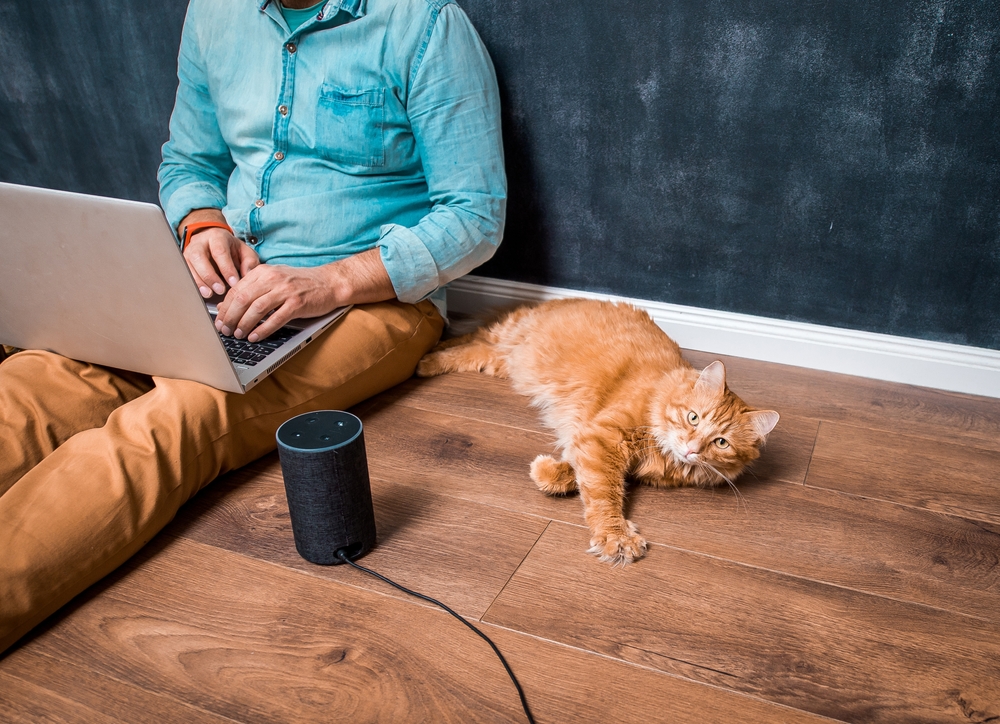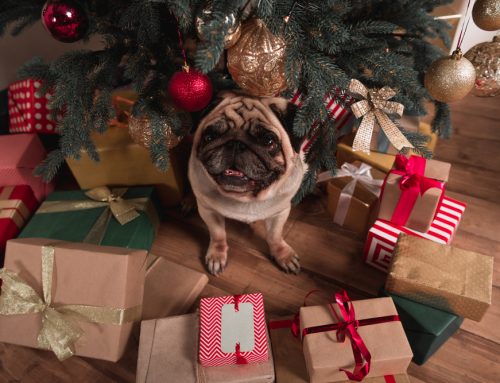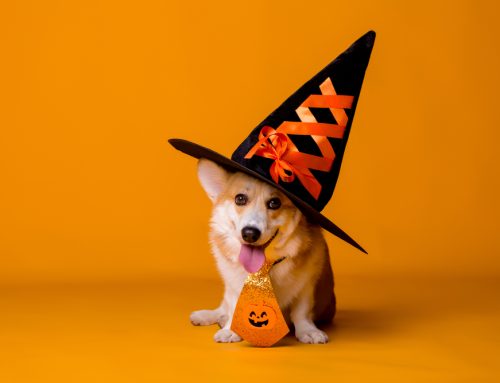The chicken wings are marinating, the potato salad is made, and the red, white, and blue bunting is hung. You think you’re ready for the July Fourth festivities, but have you taken precautions to safeguard your pet? Our team at Lebanon Animal Hospital wants to help by providing pointers to help you protect your patriotic pet.
#1: Put your pet on house arrest
July Fourth is a hectic, busy holiday. Crowds gather, traffic increases, and loud fireworks burst overhead. The craziness can upset your pet, and the best place for them may be the comfort of their own home. Create a safe area in your home, preferably in an interior room to muffle outdoor noises. Collect your pet’s favorite possessions, such as a preferred blanket and a special toy, and leave music or the television playing to drown out any scary sounds. Provide a food puzzle toy to keep them occupied, and check on them occasionally to ensure they are calm.
#2: Flag your pet
Pet shelters experience their busiest day on July 5 as they take in pets who have run away during fireworks displays. Don’t let your pet be among those who aren’t properly identified. Microchipping your pet is the best way to ensure they are returned to you if they get lost, and this simple procedure can easily be performed during your pet’s next wellness visit. Once the microchip is implanted, your only responsibility is to keep your contact information updated in the registry database. Every pet also should wear a collar and tags that have your current contact information on them.
#3: Keep your pet on a tight rein
If your pet accompanies you to the July Fourth celebration, keep them on a leash at all times. Use a harness style collar to ensure they can’t easily escape, and use a regular leash as opposed to a retractable one to maintain better control over them.
#4: Prevent your pet from partaking of the party food
Any change in your pet’s diet can cause gastrointestinal upset, and the foods typically served at July Fourth celebrations are usually high in fat, which can trigger pancreatitis in pets. Other food concerns include:
- Bones — Barbecue fare, such as chicken wings and ribs, have brittle bones that can splinter, causing damage to your pet’s mouth. In addition, they can cause a gastrointestinal obstruction if swallowed.
- Grapes — Fruit salad is a favorite summertime offering, but grapes are toxic to pets. An unknown toxin in the grapes causes kidney failure.
- Onions — Vegetables, such as onions, leeks, garlic, chives, and shallots, contain N-propyl disulfide, which causes oxidative damage to a pet’s red blood cells, resulting in anemia.
- Chocolate — No good July Fourth celebration is complete without a sweet treat, but chocolate contains caffeine and theobromine, which cause central nervous system stimulation in pets.
Pack appropriate food and treats for your pet to keep them from feeling excluded from the fun, and immediately contact Lebanon Animal Hospital or Animal Poison Control if your pet ingests a toxic food.
#5: Ensure your pet stays chill
Pets are highly susceptible to heatstroke, and some pets, such as brachycephalic breeds, overweight pets, and senior pets, are at especially high risk. Keep your pet cool by following these tips:
- Pack water — Bring bottled water and a water bowl so you can frequently offer your pet a drink.
- Avoid excessive exertion — Don’t exercise your pet strenuously on hot, humid days.
- Take frequent breaks — Give your pet frequent breaks in cool, well-ventilated areas.
- Know the signs — Heatstroke signs include excessive panting, drooling, lethargy, vomiting, diarrhea, and sudden collapse. Your pet will need immediate veterinary attention if they are affected by heatstroke.
#6: Prevent your pet from panicking

Many pets have an aversion to the noise of fireworks, which can result in a reaction similar to a panic attack in humans. Behavior modification can help desensitize affected pets, but this should be started well before the July Fourth holiday. Steps include:
- Locating a noise track — Find a fireworks recording that causes your pet to react.
- Playing the track at a low volume — Play the recording at a low enough volume that your pet remains calm.
- Making the experience positive — Play a game with your pet or feed them while the recording is playing.
- Increasing the volume — Increase the volume slightly at every session to allow your pet to adjust to the sound.
- Proceeding slowly — Your pet may need weeks or months to become accustomed to the noise, and you shouldn’t rush the process. Immediately decrease the volume if your pet shows anxiety or fear, and start the next session at the lower volume.
- Practicing for the show — Take your pet to a fireworks show, parking in an area where you can leave easily if they become upset. Keep the windows raised and the radio on when the fireworks start. Offer your pet treats and praise, and turn the radio off if they remain calm. Continue to offer treats and praise, and lower the windows to see how they react. If at any point your pet gets upset, return home.
Keep your pet safe and secure this July Fourth by following these pet safety pointers. If you would like to microchip your pet before the festivities, contact our American Animal Hospital Association (AAHA) team at Lebanon Animal Hospital so we can ensure they are properly identified.








Leave A Comment